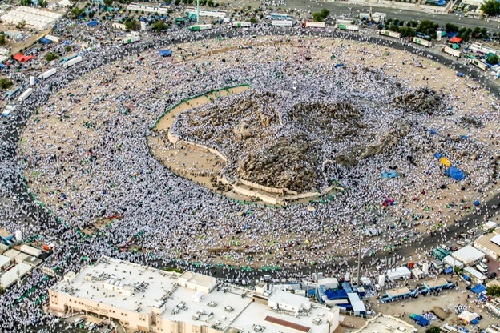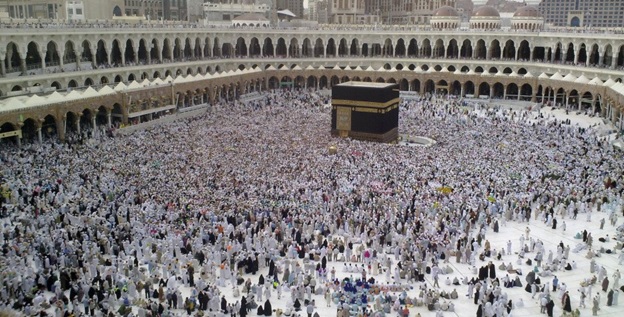
The Day of Arafah is known as a very sacred and virtuous day for Muslims. It is the day that Prophet Muhammad gave his farewell sermon upon Mount Arafah to the many Muslims with whom he completed Hajj, near the end of his life.
Another name for the Day of Arafah is ‘Freedom from Fire.’ The meaning of Arafah is “to know” Though fasting for those not on pilgrimages is desirable, most Muslims fast on this day as it is a day known to discard sins.
Islam teaches Muslims to view the Day of Arafah as a day of gratitude, hence the celebration of Eid the day after. It’s also a day of immense
forgiveness with opportunity for great reward. Pilgrims doing Hajj are not required to fast on this day. This follows the Sunnah of the Prophet,
as he himself did not fast during this day because he was performing pilgrimage.
ARAFAH TRADITIONS
The yearly pilgrimage of Hajj is compulsory for all Muslims. Hajj is the fifth pillar of Islam and is the holiest time of the year in the religion of Islam. The pilgrimage has seven rites and traditions that are followed in order. The House of Allah — The Holy Kaaba, is circulated around seven times. Next, Muslims spend a day praying on Mount Arafat, followed by an overnight stay in Muzdalifah.
A ritual of throwing stones symbolizing ‘stoning of the devil’ is performed, and then the distance between Al-Safa and Al-Mawra is covered seven times. Lastly, the farewell Tawaaf is performed in a counterclockwise direction. The Hajj rituals are much more elaborated than this, but these steps are the basics. Those who cannot travel to Mecca for the pilgrimage spend the day intensely supplicating, praying, and fasting.

The story of Prophet Ibrahim or Abraham
This year the Day of Arafah is set to begin in the evening of Friday July 8, and last until Saturday July 9. This will be followed by Eid-Al-Adha from the evening of Saturday July 9 until July 13.
Eid ul Adha’s origin begins with the story of Prophet Ibrahim (AS) or Abraham. Prophet Ibrahim was commanded by Allah to sacrifice the thing that was dearest to him: his son.
Prophet Ibrahim didn’t hesitate at this command, and set out to obey it. When he told his son, his son also agreed with him and told his father to do as Allah had commanded him. He got ready to sacrifice his son, but Allah replaced the boy with a ram. It had been a test.
To this day, Muslims around the world sacrifice cows, goats, lambs, sheep, and camels, all in the name of Allah, as they honour Prophet Ibrahim’s tradition. It is a Sunnah (a teaching of Muhammad / religious tradition) to divide the meat from the sacrificial animal into three parts.
One is to be shared between family, friends, and neighbours. Another is to be distributed among the poor and needy. And one part is for yourself and your immediate family. Many people’s Eid menus include a dish made with the sacrificial meat, as it is recommended to eat it.
The Ethiopian Herald July 9/2022





